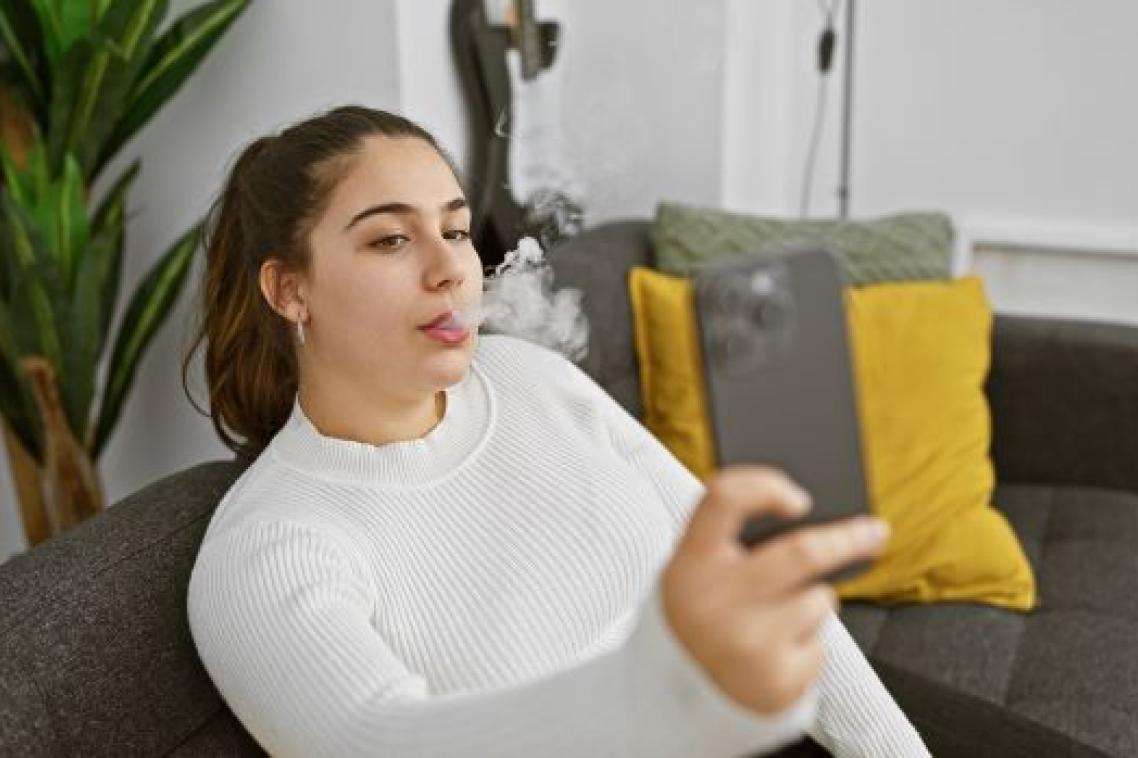Influencers sway smoking and vaping attitudes in young people

Key points
- UQ researchers say content shared by celebrities and social media influencers discussing nicotine products, including e-cigarettes, significantly influences pro-tobacco attitudes and e-cigarette use
- Sixty-one per cent of people surveyed reported being exposed to tobacco or e-cigarette content on social media, and approximately 28 per cent reported being curious to try a nicotine product
- Researchers say tougher strategies are needed to limit the promotion of pro-tobacco content on social media platforms, to create a safer online environment for youth
Young people exposed to social media posts by celebrities and influencers who endorse nicotine products are more susceptible to smoking or vaping, University of Queensland research has found.
Dr Carmen Lim from UQ's National Centre for Youth Substance Use Research led a study which assessed the survey responses of more than 5,600 young people who didn’t smoke or vape, and who used social media in the previous month.
“We found content shared by celebrities and social media influencers discussing nicotine products, including e-cigarettes significantly influenced pro-tobacco attitudes and e-cigarette use,” Dr Lim said.
“Young people were asked to identify if they saw tobacco-related content on their social media in the last 30 days, the frequency of exposure and if they were curious or intended to try products.
“Sixty-one per cent reported being exposed to tobacco or e-cigarette content on social media, and approximately 28 per cent reported being curious to try a nicotine product.”
Dr Lim said the promotion of tobacco products through paid influencer endorsements, often without disclosure of financial interest, played a significant role in normalising and glamourising tobacco use.
“This marketing particularly targets vulnerable populations such as young people or ethnic minorities, making them more susceptible to initiation and continued use,” she said.
The UQ research team used data from the Population Assessment Tobacco and Health study, a longitudinal study focused on understanding tobacco use and its health impacts.
Dr Lim said tougher strategies are needed to limit the promotion of pro-tobacco content on social media platforms, to create a safer online environment for youth.
“Enhancing age verification systems on social media to ensure minors are less likely to encounter pro-tobacco content is a good place to start,” she said.
“It’s also important to have clear disclosure of sponsorships, so audiences can make more informed decisions about the content they consume.
“This awareness can reduce the persuasive power of tobacco promotion, as people are more likely to question the creator’s motives.
“Addressing these issues is crucial to prevent the normalisation of tobacco use and to protect vulnerable populations from the harmful effects of nicotine products.”
The research is published in American Journal of Preventive Medicine.
Topics
Related articles

Australia needs doctors – so why are hundreds of qualified international physicians unable to work?

Greater attention needed on community service workforce
Media contact
UQ Communications
communications@uq.edu.au
+61 429 056 139
